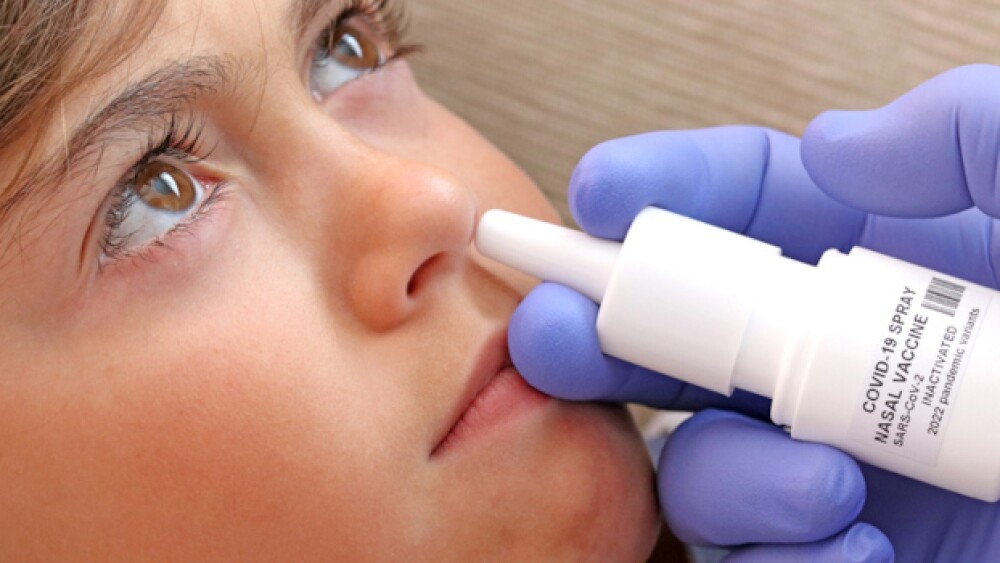The executive spoke with Biospace about Codagenix’s nasal COVID-19 spray vaccine, the COVID market, and how the company fits into the broader infectious disease space.
Pictured: A nasal vaccine being administered to a child/iStock, TopMicrobialStock
2023 was not a kind year for companies that invested heavily in the COVID-19 sphere, but Codagenix is still keeping on track with developing its vaccines for COVID-19 and other infectious diseases.
Speaking to BioSpace in San Francisco, Codagenix CEO Paul Grint explained that the company, instead of going down the mRNA and single-antigen route, takes a live vaccine approach, using a “codon deoptimized live vaccine” to try to overcome the obstacles of live vaccines. Grint, who took over the CEO position in the summer of last year, said that while there have been cases of live vaccines working, they are not necessarily sophistical and can revert to the “normal wild type,” as seen with the oral polio vaccine. Grint said that Codagenix uses synthetic biology to lower the translation efficiency of the codons in a viral genome, yielding a live-attenuated candidate vaccine.
Grint said the company initially targeted respiratory diseases such as influenza and RSV. When COVID-19 arose, Codagenix began developing a vaccine for the disease.
“So we very quickly generated a COVID vaccine, did some small-scale Phase I studies, and showed intriguing data. But at the same time, what is critical because we’re a small company, I think we’re 27 people now. . . . But what’s been critical for us is we established a partnership with the Serum Institute of India,” Grint said. “And they liked our technology because, as part of developing the viruses, we’re able to grow these viruses in various cells, which are very commonly used for making all types of manufacturing, and it’s very productive.”
In a Phase I trial the company said its nasal spray-based COVID-19 vaccine showed “robust induction of both humoral and cellular immune responses,” with T-cell reactivity that was specific for viral antigens.
However, it is no secret that the broader biotech market has apparently soured on COVID-19 products, with Pfizer and Moderna seeing down quarters and reductions in sales around the disease. But Codagenix is still holding on and forging ahead with a vaccine. Grint said there is a $6 billion market for COVID-19 vaccines, and Codagenix secured a potential $389 million deal with BARDA in October of last year as well as working with the World Health Organization.
Codagenix’s intranasal design provides a way to administer medicine fast and with “minimal side effects,” Grint said, making it easier to get into pediatric populations. And with Codagenix also in the hot RSV market, it will differentiate itself by having RSV programs for both adults and children, he added.
“The first two, three, four years of life, [RSV is] a real problem and it’s . . . not just the general population, but I think significant parts of the medical community don’t appreciate how severe RSV outbreaks can be,” he said.
“Yes, there’s work ongoing. [Sanofi] has vaccines in development, but we believe that potentially, the profile of, again, an intranasal RSV vaccine for that younger population is an area of huge unmet medical need right now. So that’s where we’re focused.”
Grint said that Codagenix hopes to have more data to release later this year.
Tyler Patchen is a staff writer at BioSpace. You can reach him at tyler.patchen@biospace.com. Follow him on LinkedIn.
Correction (January 10): Language describing how the live-attenuated vaccine is created has been revised for accuracy. BioSpace regrets the error. At the request of Paul Grint’s spokesperson, a reference to Novartis developing RSV vaccines was changed to Sanofi.






